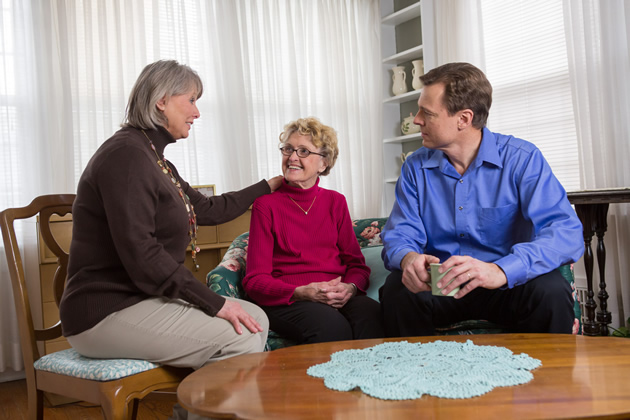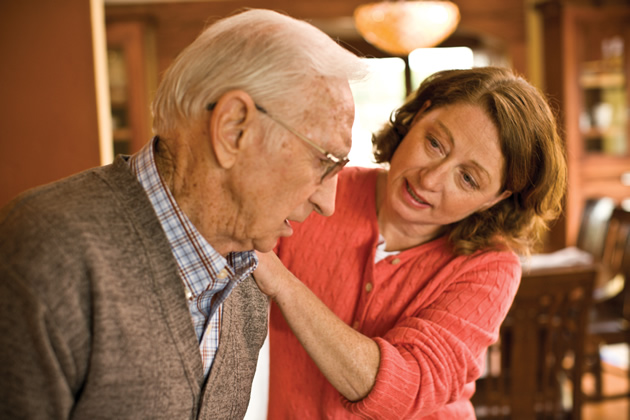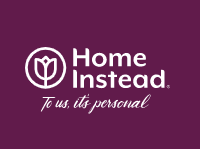Is It Time For Your Aging Parents To Get Some Extra Help?
Ten Conditions That May Mean The Answer Is Yes (Ad)

No one relishes the idea of their parents getting older. But at this time of life, many adult children find themselves in the unenviable position of having to watch over their parents’ declining health and to act accordingly to help their parents remain as independent as possible for as long as they reasonably can. Some parents accept this help from their adult children more gracefully than others.
Having factual, concrete information about the most common health conditions that may indicate your parents need extra help can assist you in talking to them and can also help you to make necessary decisions. Here are ten of the most common chronic health conditions aging parents are most likely to face and what you should look out for to best assist your parents in living with one or more of these:
One - Heart Disease
Heart disease, as well as other cardiovascular conditions, are quite common in older people as a consequence of normal aging. Heart failure, where the heart is not able to pump blood efficiently, blockages of the coronary arteries that increase the risk of a heart attack, and disturbances of heart rhythm, such as atrial fibrillation, are all frequently seen in older adults.
Cardiovascular conditions are often managed by multiple medications, such as anticoagulants, antiarrhythmics, and diuretics to reduce fluid. These medications need to be carefully managed to make sure they are being taken as prescribed and in the case of an anticoagulant (blood thinner) that proper blood levels are being maintained.
Two - COPD (Chronic Obstructive Pulmonary Disease)
COPD, also known as emphysema, is a debilitating lung condition characterized by shortness of breath on exertion as well as wheezing, frequent coughing, and tightness in the chest. Aging adults who have COPD are also more likely to develop a collapsed lung, heart problems, and even a hole in one of the lungs’ air sacs. Emphysema is a progressive disease that gets worse over time, and most people at some point will need to rely on a home oxygen tank.
Because of the shortness of breath with activity, aging parents may not be able to do the things around the house they used to do with ease, such as routine house cleaning chores, making beds, or even preparing meals. If your parent is on home oxygen, there is tubing to be kept clean, medication management and oxygen tanks to be maintained at a proper level.
Three - Cognitive Decline
A decline in brain function in aging adults is all too common, with nearly twelve percent of adults over 65 suffering some form of subjective cognitive impairment. Mild cognitive impairment (MCI), Alzheimer's dementia and Lewy body dementia are all forms of declining brain function.
While symptoms are mild, many aging parents can stay in their own homes until it becomes too dangerous for them to do so but will benefit from assistance with medication management, meal preparation, and grocery buying, as well as help with personal hygiene.
Four - Chronic Venous Stasis (CVI)
Chronic venous stasis, also known as chronic venous insufficiency, is a condition in which the valves in the veins of the legs malfunction, and blood does not travel from the legs back to the heart in an efficient manner. This causes leg swelling, pain, and intense itching. The skin on the legs becomes discolored and easily breaks down, even after a seemingly minor scratch or abrasion. These minor skin injuries can lead to painful ulcers which can take months to heal.
Older adults who have CVI often need help with keeping the skin on their legs and feet clean and hydrated. Compression stockings are often prescribed for this condition and can be very difficult for an older adult to put on properly. If a leg ulcer is present, it will need to be cleaned and dressed daily and carefully monitored for signs of infection.
Five - Sarcopenia
Sarcopenia is a common condition affecting older adults in which there is a substantial loss of skeletal muscle mass, leading to weakness, slow walking speed, and an increased risk of falling as well as sustaining a fracture.
Older adults who have sarcopenia may not be able to readily complete household chores, shopping, or carrying groceries and will need supervision in carrying out exercises prescribed by their physician to stabilize their condition.
Six - Declining Vision
Cataracts, age-related macular degeneration, and glaucoma (high inner eyeball pressure) are all common conditions associated with age-related vision decline. Vision loss, regardless of cause, can put aging adults at a greater risk for falls, accidents, medication errors and even increase a person’s risk of developing depression.
Many older adults with declining vision need assistance with household chores, medications, meal preparation, and other tasks. They also benefit from interaction with others to prevent social isolation.
Seven - High Blood Pressure (Hypertension)
Blood vessels tend to stiffen as a person grows older, leading to high blood pressure with its increased risk of stroke and heart attacks. Careful medication management is a must and should be combined with a low sodium diet, exercise, and weight loss if indicated. Help with medications and taking blood pressure readings regularly at home are essential, as well as making sure your parent is adhering to the diet and exercise regimen prescribed by his or her physician.
Eight - Type 2 Diabetes
Aging is a big risk factor for the development of type 2 diabetes, which must be carefully treated and monitored to avoid serious complications such as heart disease, diabetic eye disease, stroke, poor wound healing, and other effects.
The older type 2 diabetic may find his or her condition too much to manage without assistance, especially if they must take injectable insulin or oral blood sugar-lowering drugs. Blood sugar levels must be carefully monitored and dietary recommendations, as well as exercise prescriptions, should be followed.
Nine - Arthritis
Osteoarthritis, also known as “wear and tear” arthritis, is the most common type of arthritis in older adults. Arthritis can result in chronic pain in older adults and can make simple household chores, such as opening a jar or sweeping, difficult due to pain. Arthritis in the knees can prevent bending or walking with ease and can increase the risk of falling. Regular movement and exercise are often prescribed and older people often need encouragement and companionship to do this regularly.
Ten - A Combination of Conditions
Unfortunately, many older adults suffer from not one, but a combination of the above health conditions, putting them at even more risk for falls, accidents, depression, and social isolation. Managing medications for multiple conditions can be overwhelming in such cases and can lead to unnecessary stress.
If your parent or parents are coping with any of these health conditions, they are at risk. If so, it may be time right now, before their condition progresses or they have a fall or make a serious medication error, to help them get the assistance they so need and deserve. We understand how difficult this conversation can be for both your parents and for yourself, as an adult child. But we also know that through our services, we can help to relieve some of the worry and concern that you naturally experience as your parents age.
We provide a wide variety of services, which can be adapted to fit your parents’ unique needs and these can range from just a few hours a day of assistance to 24 hours, seven days a week. Just click here to learn more about our company and our services. Our staff would be delighted to speak with you about your needs. Home Instead Hammersmith & Chiswick is located at 186 Sutton Ct Rd, Chiswick, London W4 3HR. You can ring us at 020 8746 1213 or contact us via email at hello@hc.homeinstead.co.uk.
We look forward to speaking with you and learning more about how we can serve you and your parents to make sure they are cared for as they get older!

Advertisement
January 28, 2022
Related links
You can visit the independent home care website to read what customers have to say about their experience with Home Instead Hammersmith and Chiswick. Call them now on 020 8746 1213 to find out more about their bespoke home care service – or book a free consultation through their website www.homeinstead.co.uk/hammersmith-chiswick/contact-us |
